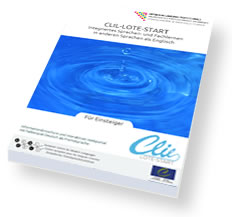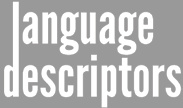Council of Europe resources
A pluriliteracies approach to teaching for learning
 Pluriliteracies Teaching for Learning (PTL) shows teachers and materials developers ways of fostering deep learning by paying attention to the development of students‘ subject specific literacies as well as their conceptual understanding and automatization of subject-specific procedures, skills and strategies. By communicating about their evolving understanding in increasingly sophisticated ways, students internalize these understandings and ways of acting and thinking. PTL not only makes the links between content and language learning visible, but it also shows how teachers can create learning trajectories taking students’ current abilities as a starting point, and tracing their progress along the learning pathway.
Pluriliteracies Teaching for Learning (PTL) shows teachers and materials developers ways of fostering deep learning by paying attention to the development of students‘ subject specific literacies as well as their conceptual understanding and automatization of subject-specific procedures, skills and strategies. By communicating about their evolving understanding in increasingly sophisticated ways, students internalize these understandings and ways of acting and thinking. PTL not only makes the links between content and language learning visible, but it also shows how teachers can create learning trajectories taking students’ current abilities as a starting point, and tracing their progress along the learning pathway.
View download page
Content and language integrated learning through languages other than English - Getting started
 The educational approach of Content and Language Integrated Learning (CLIL) is now well-known in Europe, also beyond expert circles. However, practical examples on organisation, implementation and development of CLIL are, still mostly confined to the context of the English medium CLIL. Aiming at diversification and as a contribution to European education for multilingualism, an information brochure and a rich online portal present examples of good practice in the area of CLIL with a special focus on German as a ‘CLIL-language’.
The educational approach of Content and Language Integrated Learning (CLIL) is now well-known in Europe, also beyond expert circles. However, practical examples on organisation, implementation and development of CLIL are, still mostly confined to the context of the English medium CLIL. Aiming at diversification and as a contribution to European education for multilingualism, an information brochure and a rich online portal present examples of good practice in the area of CLIL with a special focus on German as a ‘CLIL-language’.
View download page
Language skills for successful subject learning
 These resources highlight challenges for young learners in subject classes where the language of instruction is not their first language. The focus is on minimum language standards in history/civics and mathematics for learners aged 12/13 and 15/16. The language descriptors are linked to CEFR levels A2, B1 and B2 and available in six languages.
These resources highlight challenges for young learners in subject classes where the language of instruction is not their first language. The focus is on minimum language standards in history/civics and mathematics for learners aged 12/13 and 15/16. The language descriptors are linked to CEFR levels A2, B1 and B2 and available in six languages.
View download page